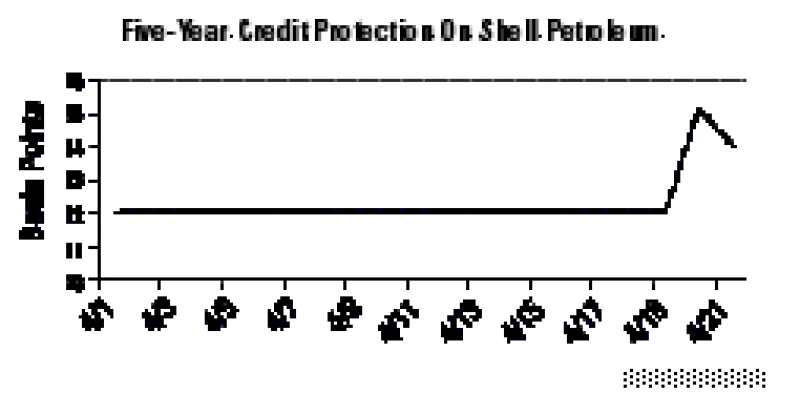The downgrade of Royal Dutch/Shell one notch by both Standard & Poor's andMoody's Investors Service failed to arouse much interest in the credit-default swap market last week. Despite the fact that the group has four entities that trade in the credit protection market, none of the names registered more than a three basis point jump in terms of the price of protection. "The most commonly traded name of the four is Shell Petroleum Company Ltd," said a trader, "but it sees very little volume." The price of protection on Shell Petroleum Company Ltd jumped to 15 basis points on Tuesday, up from 12 basis points the day before following S&P's decision to downgrade the credit.
Traders explained there are several reasons why the price did not show a notable reaction to the downgrade. "The downgrade had already been pretty much priced-in," explained one trader, as it had been on negative outlook for some months. Investors seem pretty positive on oil companies this year, he added, and a lot of houses are coming out with buy recommendations in terms of equities. Another factor which prevented the price of protection from blowing out is that there is no real appetite for credit default protection either from an arbitrage perspective or from potential hedgers, explained one credit trader.
Standard & Poor's downgraded its rating of Shell to double-A plus from triple-A last Monday and maintained its outlook for the company as negative. Analyst Emmanuel Dubois-Pelerin in Paris explained the downgrade reflected weak corporate governance and deviation from Securities and Exchange Commission rules, highlighted by the latest reassessment of reserves. Moody's Investors Service downgraded the company last Wednesday to Aa1, from Aaa.







